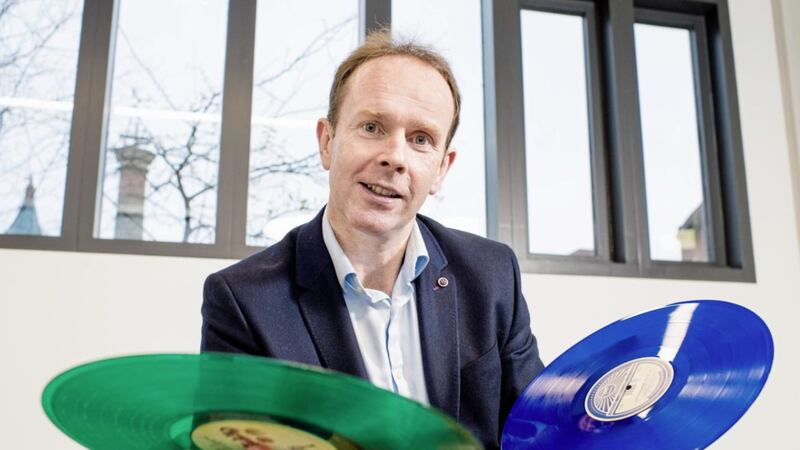VINYL sales and cyber attacks will dominate new generation technology, media and telecommunications in 2017 according to Deloitte TMT's latest predictions
The resurgence of old records will generate £825 million globally while excessive cyber attacks will number more than 10 million, the professional services firm claimed in a new report.
Meanwhile, more than a billion devices – predominantly smartphones – will incorporate fingerprint readers in 2017 and there will be over 10 trillion uses of fingerprint scanners over the year.
Sales of tablets, on the other hand, will hover around 165 million units globally – a drop of 10 per cent from last year and 30 per cent from 2014's peak of 230 million units.
In the 16th edition of TMT Predictions 2017, Deloitte identified other key trends for the year, including "significant strides" towards the creation of a 5G network.
Dr Danny McConnell, technology partner at Deloitte in Belfast, said vinyl's resurgence more than 40 years after peak sales in the late 1970s was "something of a phenomenon".
The ubiquity of music streaming services means that music has never been more accessible, portable and readily available for consumer, yet, despite that, consumers are choosing to buy something tangible and nostalgic and at a price point that provides record companies with significant revenues," he said.
"New and used discs will generate over 90 per cent of total revenues, with the remainder made up by turntables and accessories."
With regard to cyber attacks, he said escalation in DDoS (Distributed Denial of Service) threats would be due to increasing numbers of vulnerable IoT (Internet of Things) devices and online availability of IoT-focused malware and ever higher bandwidth speeds.
"Both of these allow relatively unskilled attackers to hijack IoT devices and use them as launch pads," Dr McConnell said.
"Businesses of all sizes should acknowledge the growing DDoS threat and consider how best to handle attacks of these magnitudes."
According to Deloitte, the active base of fingerprint reader-equipped devices will top one billion for the first time in early 2017, with each sensor used, on average, 30 times a day.
Predictions show that around 40 per cent of all smartphones in developed countries will incorporate a fingerprint reader by the end of the year – up from 30 per cent as of mid-2016.
"Billions of smartphones and tablets are expected to be capable of processing and collecting multiple types of biometric inputs, including face recognition, voice pattern and iris scan in 2017, but usage of fingerprints will lead the way," Dr McConnell added.
"The rapid pace of adoption of this technology will likely be met with additional applications that could use fingerprint readers to provide fast and secure authentication.
"As fingerprint security becomes more common, consumers will find it easier – and will be more willing to pay for goods and services using their smartphones."







